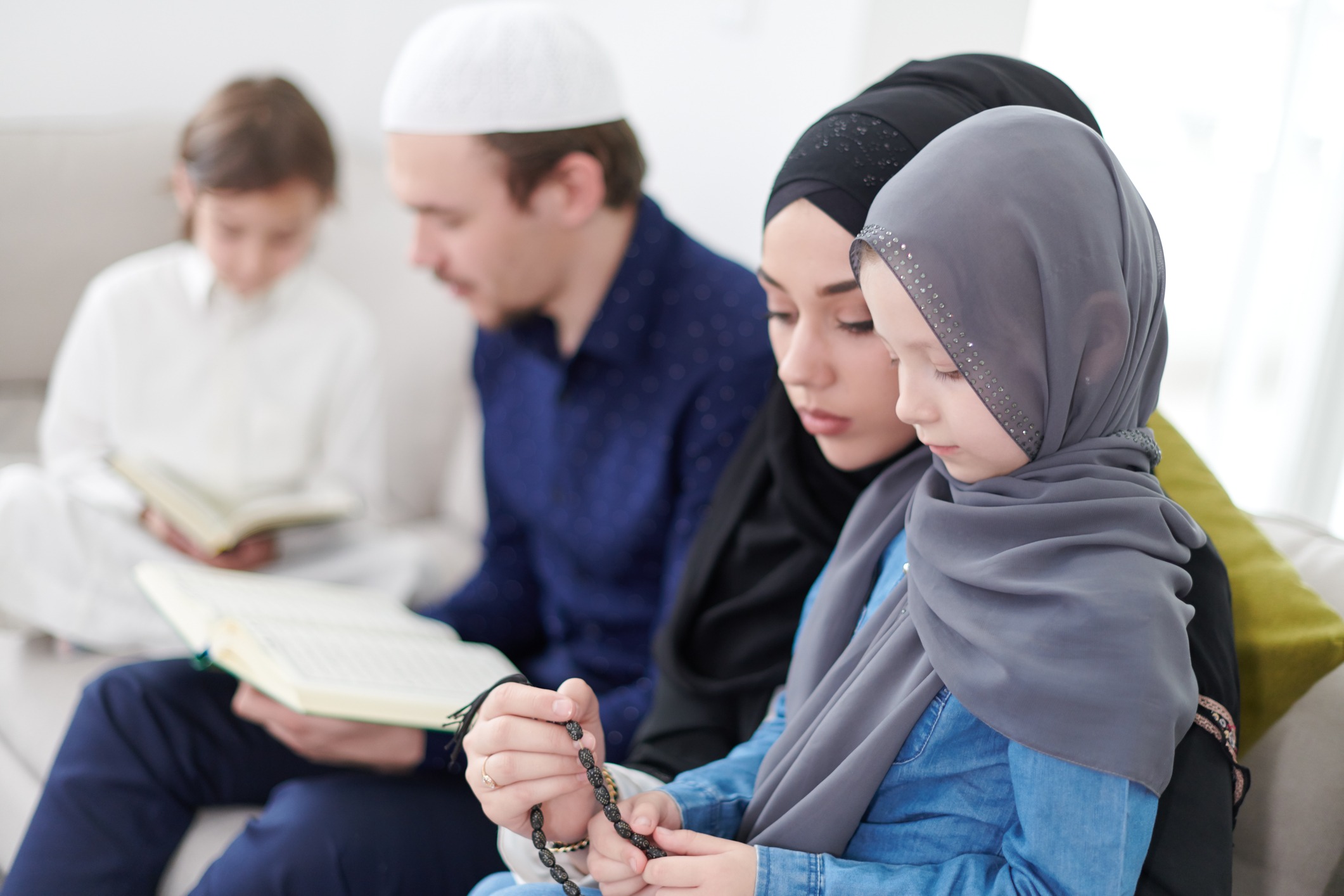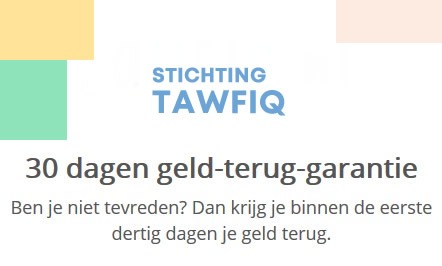-
Islamic knowledge, education and training
- How Islamic principles and rules of conduct can help raise children to self-control.
- How parents can teach their children to control their emotions using Islamic principles and rules of conduct.
- The role of religious stories in educating for self-control according to Islamic principles and rules of conduct.
- The influence of Islamic culture on developing self-control in children.
- The importance of discipline in educating for self-control according to Islamic principles and rules of conduct
“Raising with Islamic principles: the key to self-control!”
Educating self-control is an important part of Islamic education. It is about learning principles and rules of behavior that help children control their emotions, thoughts and actions. These principles and rules can be learned through stories, lessons, discussions, and other activities. They help children control their impulsive reactions, interact respectfully with others, and take responsibility for their actions. In this article, we will discuss the different ways in which parents can help their children learn self-control according to Islamic principles and rules of conduct.
How Islamic principles and rules of conduct can help raise children to self-control.
The Islamic principles and rules of conduct can be of great help in raising children to self-control. Islamic teachings emphasize the value of respect, responsibility and discipline. They also stand for the importance of good manners, dignity and tolerance.
Parents can help their children understand these principles by teaching them about the Quran, Hadith (stories about Muhammad), and other Islamic sources. Through stories from the Quran or Hadith, parents can teach their children to be respectful of others, take responsibility for their actions, and accept consequences when they do wrong. Parents can also teach lessons in tolerance through discussions about different religious or cultural backgrounds with their children.
In addition, it can be helpful to impose rules on your child that make it clear what is and is not allowed in certain situations. This helps your child to set boundaries on what he/she finds acceptable or not in terms of behavior towards other people. It can also be useful to give your child appointments that he/she must follow if problematic behavior occurs such as shouting, fighting or lying; this helps your child to handle stressful situations better and maintain more control over themselves when emotional reactions occur
How parents can teach their children to control their emotions using Islamic principles and rules of conduct.
Parents can help their children manage their emotions using Islamic principles and rules of conduct. These principles and rules can help parents teach their children how to deal with emotions in a constructive way.
First, it is important that parents teach their children about the value of self-control. According to Islamic tradition, self-control is seen as a form of religious merit, making it important that parents encourage this in their children. Parents can help by talking about the benefits that self-control can provide, such as better relationships with others, more peace of mind and more control over your reactions to situations.
In addition, attention should also be paid to teaching children good communication skills. Good communication skills can help manage emotional responses, such as anger or frustration. Parents can learn, among other things, how to talk to each other openly and respectfully, listen to each other's opinions and sit together to discuss problems instead of arguing or shouting at each other.
Finally, one can also look at different techniques that can be used to curb emotional reactions, such as breathing exercises or mindfulness exercises aimed at reducing stress levels. Through these techniques, new children can learn how to stay calm when they become angry or stressed. This helps them make better choices when they find themselves in difficult situations.
In short, through Islamic principles and rules of conduct, a parent can help learn more about how to better control their emotions. By talking openly about self-management, developing good communication skills, and so on, clients can help their children learn how to better keep their emotions under control.
The role of religious stories in educating for self-control according to Islamic principles and rules of conduct.
Religious stories play an important role in educating children to self-control according to Islamic principles and rules of conduct. The Quran, the sacred text of Islam, contains many stories that can serve as examples for children to help them understand what is good and bad behavior. These stories can be used to teach children how to control their emotions, treat others respectfully, and fulfill their duties to God and other people.
The Quran contains many stories about prophets such as Abraham, Moses, Jesus and Mohammed who all had qualities that children can learn from. For example, Abraham was known for his devotion to God; Moses was wise; Jesus was loving; Muhammad was righteous. By telling these stories, children will gain insight into what good qualities are that they can use to teach themselves normal behavior.
Furthermore, parables from the Koran are often referred to as examples of how you should behave as a Muslim. One of the most popular parables is the one about two men who met in a desert: one man had learned how to restrain himself, while the other had not. In the end, it turned out that the person with more discipline fared best in situations where he was exposed to different types of dangers, hence that person also achieved more success than the one who was not so well disciplined, that parable clearly shows that discipline is important for successful outcomes in life, from a religious perspective, this is because God wants us to do our best to meet the most virtuous people possible by doing our best to follow what He prescribes for us in order to achieve His will-executing virtue in our daily activities, but this can sometimes be difficult because we sometimes tend to let go of our emotions or impulsiveness, which causes us to make mistakes, which causes us to deviate from God's precepts, so the most important aspect of religious discipline is that we always trying to restrain our emotions or impulsiveness according to God's precepts by adhering to them and gradually achieving satisfaction regarding His will
The influence of Islamic culture on developing self-control in children.
Islamic culture has a major influence on the way children learn self-control. The Islamic religion places great emphasis on the importance of self-control and discipline, which means that parents should encourage their children to be respectful and keep their emotions in check. Parents can do this through various techniques, such as giving praise when a child exhibits good behavior, or by setting consequences for bad behavior.
Parents can also help their children develop self-control by teaching them about Islamic principles related to respect and discipline. Children are taught to treat other people with respect, as well as to control their anger when they get angry. Also, a lot of emphasis is placed on the need to adhere to rules and regulations, which helps in the process of developing self-control in children.
Furthermore, parents can ensure that they remain consistent in the way they communicate with their children about discipline-related issues. Providing consistent feedback as a first step towards change can help in the development of self-control in children from Islamic cultures.
The importance of discipline in educating for self-control according to Islamic principles and rules of conduct
Discipline is an important part of raising children according to Islamic principles and rules of conduct. It helps children learn self-control, which is essential for their personal growth and development. Discipline also helps to teach children to treat others with respect, which in turn contributes to a harmonious society.
According to Islamic principles, discipline should be given with love and understanding. Parents should help their children understand why certain rules are necessary, rather than just punishing them when they break them. This can be achieved through open communication between parents and children, where parents explain to their children why certain rules are important for their well-being and that of other people in society.
To apply effective discipline according to Islamic principles, several factors such as age, personality and temperament of the child must be taken into account. Parents should always try to use positive reinforcement when it comes to discipline; So instead of punishment or negative reinforcement, parents can give compliments or extra attention when owners demonstrate good behavior. This helps create simple but effective structures that ensure that young people act respectfully towards other people.
Either way, discipline according to Islamic principles is all about love and understanding for youth, while still providing clarity on what is and is not acceptable behavior. By building these types of structures, young people can gain more confidence in their abilities to make good choices, while still remaining respectful towards other people. Educating self-control is an important part of Islamic education. It promotes children's ability to regulate their emotions and behavior, leading to more respectful relationships with others. Islamic principles and rules of conduct provide a framework within which children can learn to control their impulsive reactions so that they are able to make rational decisions that are in accordance with Islamic values. Through loving discipline, consistent boundaries, and positive reinforcement, parents can help their children learn the skills necessary to develop good social skills and self-esteem.







